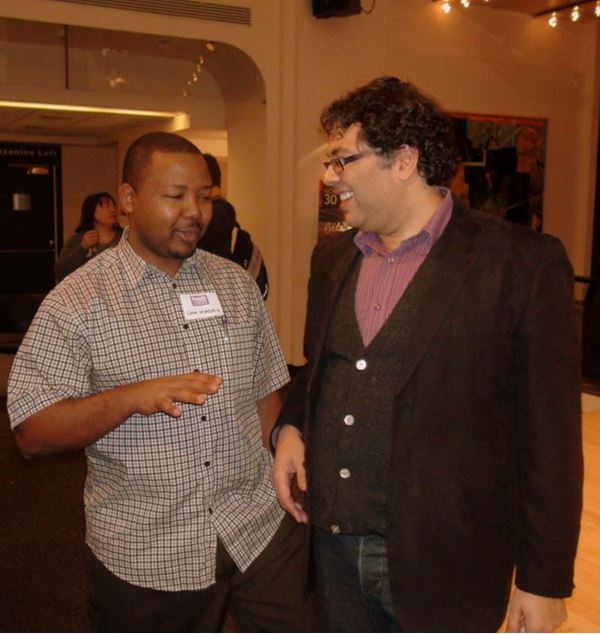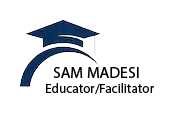What is the Purpose of Education?
There is no clear consensus on the purpose of education among educators, students and the general public. Not even Malcolm Forbes’s popular quote on the purpose of education has been spared. He argued that “education’s purpose is to replace an empty mind with an open one.” It is not clear to me in what context he used the word empty in his quote because I do not believe that there is anybody with an empty mind. On the contrary I strongly believe that all learners at any level come with a glass half-full and the the purpose of education is to fill-up the remaining half enabling the individual to perform at their full potential. However, there is a sense in which Malcolm’s philosophy on an ‘open mind’ inspires my education ambitions. My interaction with the people of the world has taught me that the more we know about the world, the more we can understand and respect it. Malcolm teaches us that “prejudice and stereotypes disappear if you can understand the world. Social issues become clearer when you are educated on the facts. Respect for the world is the best side effect of education” – Kelly Marcus ( Aug 26, 2019).
Over the years, I have development a belief that the purpose of education is best elucidated by the learner. It is not exhaustive to assume that all people seek education to find jobs, create business and jobs, or be better leaders and managers. Sometimes, there is more to that. I remember going to school with quite many learners over 60 years for my undergraduate degree. I believe most of us were teenagers or in our early 20s. We were always curious to know why such older people most of whom were very prosperous business people, popular politicians and celebrated religious leaders. There was one common answer. “I sometimes feel left out and do not fit in some conversations. I just want to look, feel and stand up to be counted as a graduate.” It seemed to us as if they had everything one would ask in this world but in their view, life was not complete without formal education. I’m using the word ‘formal’ education here to be clear because these successful elders had definitely been educated informally and non-formal. The feel-good-factor is what makes our lives meaningful and perhaps the reason why John Dewey argued that “education is not preparing for life, education is life itself.”
It was during my graduate studies at St. Francis Xavier University in the department of adult education that I come to a realization that education is a life-long-journey of continuous learning. Going to school, college or university is a small subject of education and not a definition of education in itself. My life long journey of learning did not start with my school and never ended the day I graduated; it has been a continuous process of learning and my education is the sun total of all the formal, informal and non-formal learning to-date. Like I have discussed above, the 60 years old who chose to go back to school had not been schooled, but were certainly educated enough to run their businesses. This discussion is central in underpinning my education philosophies and my understanding of the purpose of education.
“In 1938, Dewey argued that the primary purpose of education and schooling is not so much to prepare students to live a useful life, but to teach them how to live pragmatically and immediately in their current environment. By contrast, Counts, a leading progressive educator in the 1930s, critiqued Dewey’s philosophy stating, “the weakness of progressive education thus lies in the fact that it has elaborated no theory of social welfare, unless it be that of anarchy or extreme individualism” (1978, p. 5). To Counts, the purpose of school was less about preparing individuals to live independently and more about preparing individuals to live as members of a society. In other words, Counts felt the role of schooling was to equip individuals with the skills necessary to participate in the social life of their community and to change the nature of the social order as needed or desired.” – (nn, Wesleyan University).
I want to believe that one of the key roles of education is to ignite critical consciousness that facilitates our abilities to examine our societies and determine what is good and not good for our well-being. There is a sense in which education stimulates and brings to life our ‘critical attitude‘ toward the world in a manner that facilitates meaning-making of our world and find ways to change it or take action. Whether writing about popular education, critical pedagogy, pedagogy of the oppressed or conscientiousness, one central message in Paulo Freire’s purpose of education is such that “man’s striving for his own humanity requires the changing of structures which dehumanize both the oppressor and the oppressed.” We go to school so we can come back and change our communities and not to maintain the status quo. In our 2019 publication titled ‘seeds of radical education at the Coady Institute’ we share our experiences using radical education techniques to educate thousands of our participants who are fostering social justice and changing the world. Friere, Illich and Giroux all present strong ideas about radical education and agree that radical education is participatory, democratic and empowers the poor to restructure society by promoting equality. Of particular interest to me is that radical education is critical of traditional education methods and makes the argument that traditional education fosters hierarchy and inequality. There is no way you train students as though they were military recruits with little or no participation in their learning and decision making processes and expect them to be democrats in their practices.
As though in agreement with Friere, George Washington Carver argued that “Education is the key to unlock the golden door of freedom.” Similarly, Nelson Mandela who spent majority of his life fighting for freedom and apartheid in South Africa said that “Education is the most powerful weapon which you can use to change the world.” I have already made a distinction between schooling and education which are usually confused to mean the same. We know that even those who are not schooled can still be educated but there is no consensus on how such an education should happen and its purpose. Friere’s social justice education aimed at empowering the poor and the illiterate to rise up against the oppressors and consequently change the world structures. Just like Friere used popular education methods to change the world, I strongly believe that the methodology the educator chooses to use will strongly impact and guide the learners purpose. I have on another page addressed the educational methodology question and how it relates with the purpose of education. It is possible that some graduates may forget what they were taught at school but what they cant forget is the skills of critical consciousness and analysis of their society’s challenges to change the injustices in society. Indeed, “education is what remains after one has forgotten what one has learned in school.” – Albert Einstein.
introduction
Talk to me for help
I help global learners with their ambition’s most critical issues and opportunities. Together, we create enduring change and results.

career
Find your will now
I help global scholars with their organization’s most critical issues and opportunities. Together, we create enduring change and results.


